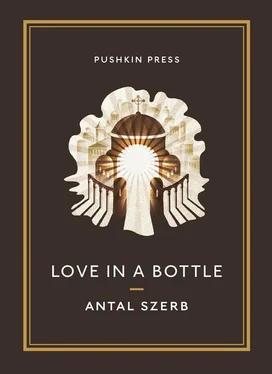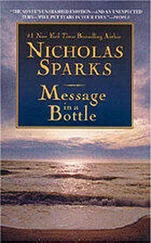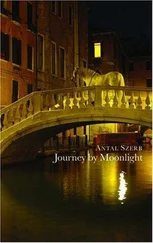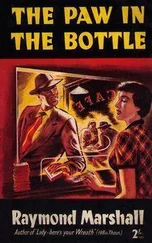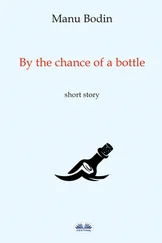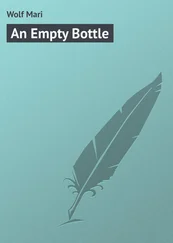Antal Szerb - Love in a Bottle
Здесь есть возможность читать онлайн «Antal Szerb - Love in a Bottle» весь текст электронной книги совершенно бесплатно (целиком полную версию без сокращений). В некоторых случаях можно слушать аудио, скачать через торрент в формате fb2 и присутствует краткое содержание. Год выпуска: 2013, Издательство: Pushkin Press, Жанр: Классическая проза, на английском языке. Описание произведения, (предисловие) а так же отзывы посетителей доступны на портале библиотеки ЛибКат.
- Название:Love in a Bottle
- Автор:
- Издательство:Pushkin Press
- Жанр:
- Год:2013
- ISBN:нет данных
- Рейтинг книги:5 / 5. Голосов: 1
-
Избранное:Добавить в избранное
- Отзывы:
-
Ваша оценка:
- 100
- 1
- 2
- 3
- 4
- 5
Love in a Bottle: краткое содержание, описание и аннотация
Предлагаем к чтению аннотацию, описание, краткое содержание или предисловие (зависит от того, что написал сам автор книги «Love in a Bottle»). Если вы не нашли необходимую информацию о книге — напишите в комментариях, мы постараемся отыскать её.
and
.
Love in a Bottle — читать онлайн бесплатно полную книгу (весь текст) целиком
Ниже представлен текст книги, разбитый по страницам. Система сохранения места последней прочитанной страницы, позволяет с удобством читать онлайн бесплатно книгу «Love in a Bottle», без необходимости каждый раз заново искать на чём Вы остановились. Поставьте закладку, и сможете в любой момент перейти на страницу, на которой закончили чтение.
Интервал:
Закладка:
Obsessive behaviour again features in “The Incurable”, making sport of another problem with which the writer was only too familiar. It adds a passing reminder of his amused admiration for the English (by which, like all Hungarians, he means the British), with their absurdly magnificent Empire and other foibles and eccentricities.
The Duke , the last of these tales and written in wartime, differs markedly in tone. Essentially, it is a miniature companion piece to Szerb’s great historical study, The Queen’s Necklace , which had appeared the year before. Through the ‘imaginary portrait’ of the somewhat comical Duke he gives us a cameo of late-Renaissance Italy, not sparing “the nepotism, the anarchy, the hundred different kinds of decadence” at its core. The sumptuous period details are handled with affectionate irony; the touch is always light, despite a deep underlying nostalgia. The prevailing tone of all-forgiving tolerance is, given the personal circumstances in which it was written, both remarkable and moving.
*
Over these twenty-one short years Szerb’s art developed and changed, but there is also a subtle continuity. If we attend closely, the same endearingly sympathetic presence can be felt behind the words. Everything he writes, especially once he has found his mature voice, comes across as personal, written from the heart — a heart that, for all the lucid intelligence of the mind, seems both intensely in love with life and unusually vulnerable.
The youthful novellas, with their earnest tone and burning idealism, reveal the core from which everything followed. Having decided against a life in the Church, and with his hopes for a liberal post-war Hungary dashed, the young writer poured his feelings into the sweetness and purity of these tales — and other less successful ones, not translated here. At the same time they skirmish with personal concerns of a sexual and spiritual nature that will be more fully addressed later.
The next decade or so, spent mostly (and perforce) teaching in a commercial secondary school in Budapest, is marked by prolific scholarship. His doctorate on the Hungarian poet Kölcsey was quickly followed by studies of Ibsen, Blake, the History of English Literature mentioned earlier, a work on the Hungarian Pre-Romantics and monographs on various national poets. These achievements, and the periods spent abroad, brought a mature confidence. When he returned to fiction in 1934, with the first of the new-style stories and The Pendragon Legend , he had found his instrument, that unmistakably personal tone: genial, gently ironical, wryly disillusioned. One can argue that everything Szerb writes before 1937 is, one way or another, a preparation for his acclaimed masterpiece of that year, Journey by Moonlight .
These were precious years. In that same annus mirabilis of 1934 his History of Hungarian Literature brought him public acclaim: a major literary prize (the Baumgarten) and the presidency of the Hungarian Academy of Writers. Three years later, despite fierce opposition provoked by his Jewish descent, he was finally offered a university position. His next volume, the History of World Literature (1941), sought to place the tradition of his own country in the wider Western European context. It was supplemented by countless reviews and essays, on books and writers from every major Western country.
But the times were changing. His work was denounced in Parliament and banned. A wave of anti-Jewish laws stripped him of his university post and led to periods of forced labour. Increasingly, his fascination with philosophical and psychological matters ceded to an even older preoccupation, history. It was now, he tells us, his ‘country of refuge’. A more broadly ‘political’ outlook partly distinguishes his third novel Oliver VII (1941) from its two predecessors, but its greatest fruit was of course The Queen’s Necklace (1942). His very last (posthumous) publication, which has enjoyed lasting success, was a compilation of one hundred poems translated from different European languages — his final monument to the civilisation he saw collapsing all around him.
Through all the horror, he never lost faith in humanity, never lapsed into cynicism. Even with the end approaching, he retained his self-effacing gentleness, repeatedly putting the lives of others before his own — eventually with fatal results. There are writers who create works of great inspiration and beauty while behaving no better than the rest of us, or indeed rather worse. The Antal Szerb whose life was so pointlessly squandered in 1945 is not one of them.
LEN RIX 2012
PART ONE. 1922–23
AJÁNDOK’S BETROTHAL
St John of the Flowers,
how bright is your night
as I stand here before you,
in simple reverence—
till your clear bright skies
grow sombre with clouds.
IT WAS ST JOHN’S NIGHT, the night of St John of the Flowers, the shortest night of the year, when darkness crouches low on its ankles before rising slowly, slowly, to its full height once again.
The wagon of the Great Bear had already been wheeled out, freshly washed, into the sky, and the entire village, both young and old, in all their festive finery, flocked up the hill to where the statue of the Blessed Virgin stood wreathed in flowers. At its feet they made a pile of straw and brushwood and, at the appointed hour, set it alight in the time-honoured fashion. The straw flickered with a young, skittering flame, as did the glowing cheeks of young Lidi as she was led into the centre, and soon the brushwood followed, slow and hesitant, like the dancing of the older women, and the fire of flowery St John was fully ablaze.
The next instant, from every hilltop far and near, answering fires flashed out greetings to one another, like so many kings of the summer throned in radiance above the wide plains.
Along one side of the conflagration sat the worthy elders, among them the miller, as proud as if the whole summer were his own, for the entire harvest was piled high in his barn. On the other side the venerable older women, including the miller’s mother — renowned for her wisdom in seven villages — sat looking across to where the comely younger women were seated. With these was her oldest granddaughter, the same Lidi, whose gaze was directed in turn to where the handsome young men of the village were seated. Among them was Bálint, the miller’s foreman, her secret sweetheart.
The boys all carried long sticks with lengths of straw attached to the ends. These were now set alight and brandished overhead in waving, snake-like movements, leaping nightmarishly in all directions, while the girls threw their fresh flowers onto the fire. The young people shouted and danced, until the blaze finally settled down to burn with a gentle, steady flame (St John’s bonfire never did last very long) and then the games began. A handful of the girls set the song in motion, and the rest quickly followed:
 villog, nap ragyog
villog, nap ragyog
hunyor a személye,
rózsa nyílik 
és utána liliom
Fire burns, sun shines
incarnate in the hellebore,
the rose opens before it
and after it the lily
and Lidi said to Bálint, and Bálint said to Lidi: “You are my treasure,” and all the young people shrieked with laughter, as if hearing this news for the first time. Bálint muttered something under his breath, then rose to his feet, as did the furiously blushing Lidi, and there they stood, side by side, an acknowledged couple. They waited while the girls sang the wooing song, then jumped, hand in hand, through the fire. The miller just smiled and smiled, thinking of his grandchildren as budding ears of corn in God’s great field — there would be so many children, a happy family in the old windmill, and he would be prouder than the Emperor himself when the guard paraded before him.
Читать дальшеИнтервал:
Закладка:
Похожие книги на «Love in a Bottle»
Представляем Вашему вниманию похожие книги на «Love in a Bottle» списком для выбора. Мы отобрали схожую по названию и смыслу литературу в надежде предоставить читателям больше вариантов отыскать новые, интересные, ещё непрочитанные произведения.
Обсуждение, отзывы о книге «Love in a Bottle» и просто собственные мнения читателей. Оставьте ваши комментарии, напишите, что Вы думаете о произведении, его смысле или главных героях. Укажите что конкретно понравилось, а что нет, и почему Вы так считаете.
